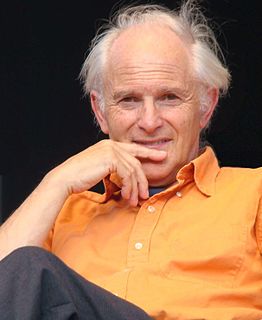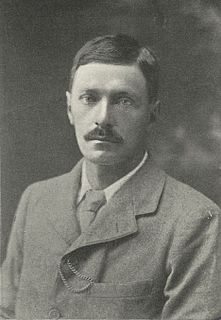A Quote by Doris Lessing
I hated the 1960's feminists," she says. "They were dogmatists, you see. In comes ideology, and out goes common sense. This is my experience of life.
Related Quotes
The woman who runs the Pennsylvania Innocence Project told me that there's a man she's been trying to get out of prison for 26 years. Every night before she goes to bed, she thinks, 'What is he doing?' She says you don't sleep. And yet, she has the greatest sense of humor and this light that comes out of her.
I'm pretty laidback as a dad anyway. I just trust her so much. She has a great head on her shoulders and she makes pretty good decisions most of the time. She even has enough common sense that if she makes a bad one she makes adjustments and knows that's what life is. It's a day-by-day, step-by-step journey through life, as she says in the movie.
As soon as you look at the world through an ideology you are finished. No reality fits an ideology. Life is beyond that. That is why people are always searching for a meaning to life. But life has no meaning; it cannot have meaning because meaning is a formula; meaning is something that makes sense to the mind. Every time you make sense out of reality, you bump into something that destroys the sense you made . Meaning is only found when you go beyond meaning.
Whatseems to take place outside ideology (to be precise, in the street), in reality takes place in ideology. What really takes place in ideology seems therefore to take place outside it. That is why those who are in ideology believe themselves by definition outside ideology: one of the effects of ideology is the practical denegation of the ideological character of ideology by ideology: ideology never says, 'I am ideological.'
Many expressions that are in common usage, and sometimes the structure of language itself, reveal the fact that people don't know who they are. You say: "He lost his life" or "my life," as if life were something that you can possess or lose. The truth is: you don't have a life, you are life. The One Life, the one consciousness that pervades the entire universe and takes temporary form to experience itself as a stone or blade of grass, as an animal, a person, a star or a galaxy. Can you sense deep within that you already know that? Can you sense that you already are That?
This was solidarity. The debutante having her toenails pedicured - the housewife buying carrots from a pushcart - the bookkeeper who had wanted to be a pianist, but has the excuse of a sister to support - the businessman who hated his business - the worker who hated his work - the intellectual who hated everybody - all were united as brothers in the luxury of common anger that cured boredom and took them out of themselves, and they knew well enough what a blessing it was to be taken out of themselves.
I hated the mountains and the hills, the rivers and the rain. I hated the sunsets of whatever colour, I hated its beauty and its magic and the secret I would never know. I hated its indifference and the cruelty which was part of its loveliness. Above all I hated her. For she belonged to the magic and the loveliness. She had left me thirsty and all my life would be thirst and longing for what I had lost before I found it.







































